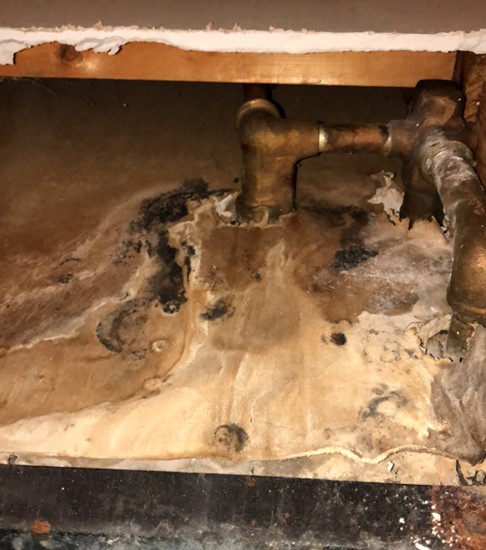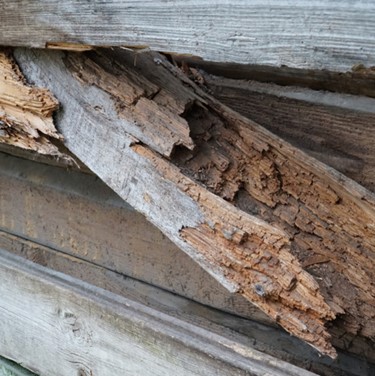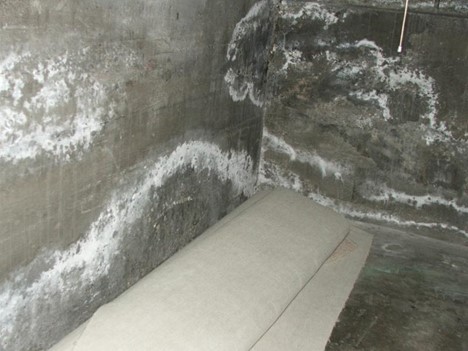Why you Shouldn’t Ignore Water Damage
Why you Shouldn’t Ignore Water Damage
WINMAR Property Restoration is a leading provider of water damage restoration services, and we understand the importance of addressing water damage as soon as possible. Certain species of mold can grow in; therefore, the longer water damage goes un-mitigated, the greater the chance of the remediation being more costly and disruptive.
Here are five reasons why you should not ignore water damage in your home or business:
1. Health hazards: The ANSI/IICRC S520 Standard for Professional Mold Remediation indicates that mold can grow in as little as 72 hours under ideal conditions (for more information on mold check out our blog “I THINK MY HOME HAS A MOLD PROBLEM”). In addition to mold growth concerns, standing water can harbour bacteria such as Legionella and other harmful microorganisms such as Cryptosporidium, Giardia, and Escherichia coli (E. coli), putting your health at risk. Mold, bacteria, viruses, and protozoa can lead to respiratory problems, diseases, and other short-term and long-term health issues.
Photo: Mold growing behind bathtub
Photo: E. coli
2. Cosmetic damage: Many interior finishes in a home or commercial space such as drywall, ceiling tiles, and flooring are irreversibly damaged when significant quantities of water come into contact with them over an extended period of time. These damages can be both costly and disruptive to repair.
3. Structural damage: Many single-family homes and low-rise buildings are constructed of wood framing. When wood becomes saturated with water, it loses its structural integrity. Wall stud span tables and joist span tables in the National Building Code of Canada are based upon a set moisture content range for various species of wood. When moisture exceeds this range, the load capacity of the member is reduced accordingly. Certain species of mold thrive in high moisture content environments, otherwise referred to as “wet rot” and certain species grow with less moisture, referred to as “dry rot”. As mold grows, it decays the material it is on, thus reducing the area of the wood and its structural capacity. Sometimes, we will remove the drywall at the perimeter of a basement only to find a fine dust and the lower 12” of the wall studs are completely gone! Repairing structural damage of any nature can be costly as often the structure has to be temporarily shored up to facilitate repairs.
Photo: Wood Rot
4. Loss of valuables: Water can destroy personal belongings, including furniture, electronics, and important documents. Non-porous contents are generally restorable when they have contacted water for a short period of time, but semi-porous and porous materials are often difficult to restore when they have been sitting in water for an extended.
5. Increased insurance costs: If water damage is not addressed promptly, it can lead to more extensive damage and higher insurance costs. Policyholders are held accountable by a clause that indicates they have a “duty to mitigate”. If water damage is willfully ignored, you may be denied full or partial coverage as you were aware of the problem and chose not to mitigate it. Obtaining a new insurance policy on a home that has pre-existing water damage may prove difficult, and coverage may be denied if you did not disclose this condition to your insurance carrier/broker.
6. Reduced property value: Water damage can significantly lower the value of your property, making it difficult to sell or rent. If there are signs in your basement of concrete efflorescence, this points a building inspector to the conclusion that you have a reoccurring water problem. Efflorescence is the phenomenon that occurs when salt in concrete or groundwater is deposited as an unattractive white powder or stain on the surface of a wall.
Photo: Concrete efflorescence
If you suspect water damage in your home or business, it is essential to take immediate action. Contact WINMAR Property Restoration for a fast, professional response to your water damage needs. We have the expertise and equipment to effectively address the problem and restore your property to its pre-loss condition.




